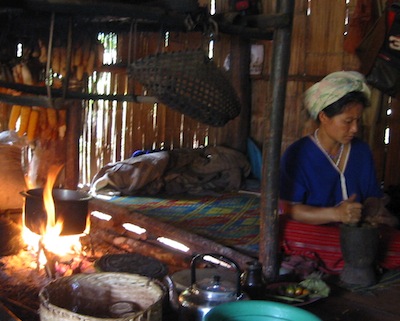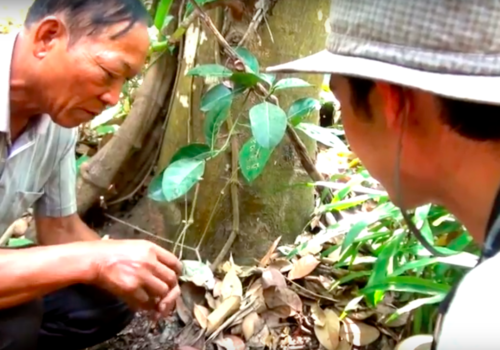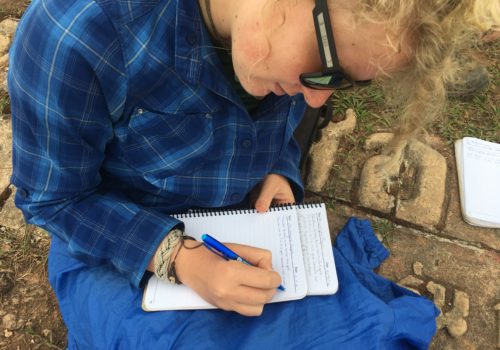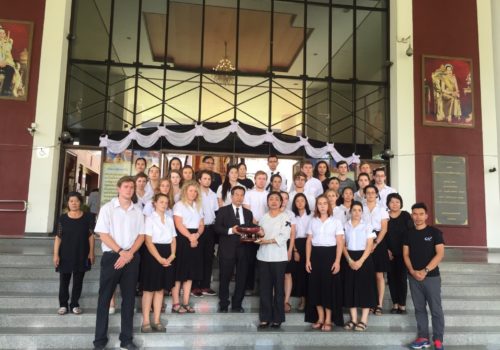
A Karen host-mom prepares a meal in the family kitchen.
Right now our students are up in Mae Hong Son, living and learning with the Karen (Ba’ken yaw) people. A large part of the Forests Course is learning about the ecosystems of upland Northern Thailand, including how upland rotational farming as practiced by the Karen fits into that. It is a complex issue, as practices which are ecologically sustainable at low population densities face pressure with growing numbers of villagers, and as the Thai State moves to further extend control of mountain areas. (There have even been efforts to remove tribal people from the mountains by force, thwarted only by NGOs and journalists exposing what was happening.)
But it is hard to fight corrupt officials and powerful commercial interests bent on extracting the last tree, log or flower from the forest, since the Karen are marginalized by language, culture, and the remoteness of their mountain villages.
As James Fahn, author of the book Land on Fire points out, in Southeast Asia, environmental issues often have a human rights component.
That’s true in America as well.
I’ve often been struck with the similarities of marginalized mountain peoples of both Thailand and the United States, particularly in Appalachia. There, human rights violations, corrupt government officials, and powerful private interests are not only displacing already marginalized people, but literally destroying the mountains to profit, not from logs, but from coal.
A great movie has been produced by Yale 360 on mountaintop removal mining (MTR), Leveling Appalachia.
During the last two decades, mountaintop removal mining in Appalachia has destroyed or severely damaged more than a million acres of forest and buried nearly 2,000 miles of streams. Leveling Appalachia: The Legacy of Mountaintop Removal Mining, a video report produced by Yale Environment 360 in collaboration with MediaStorm, focuses on the environmental and social impacts of this practice and examines the long-term effects on the region’s forests and waterways.
If ISDSI was in the United States, those are the communities our students would be living in right now. That would be our Forests Course.
If you are in the US or not, watch Leveling Appalachia, then get involved in helping stop mountaintop removal.
At least in Thailand the trees have a chance to grow back.



